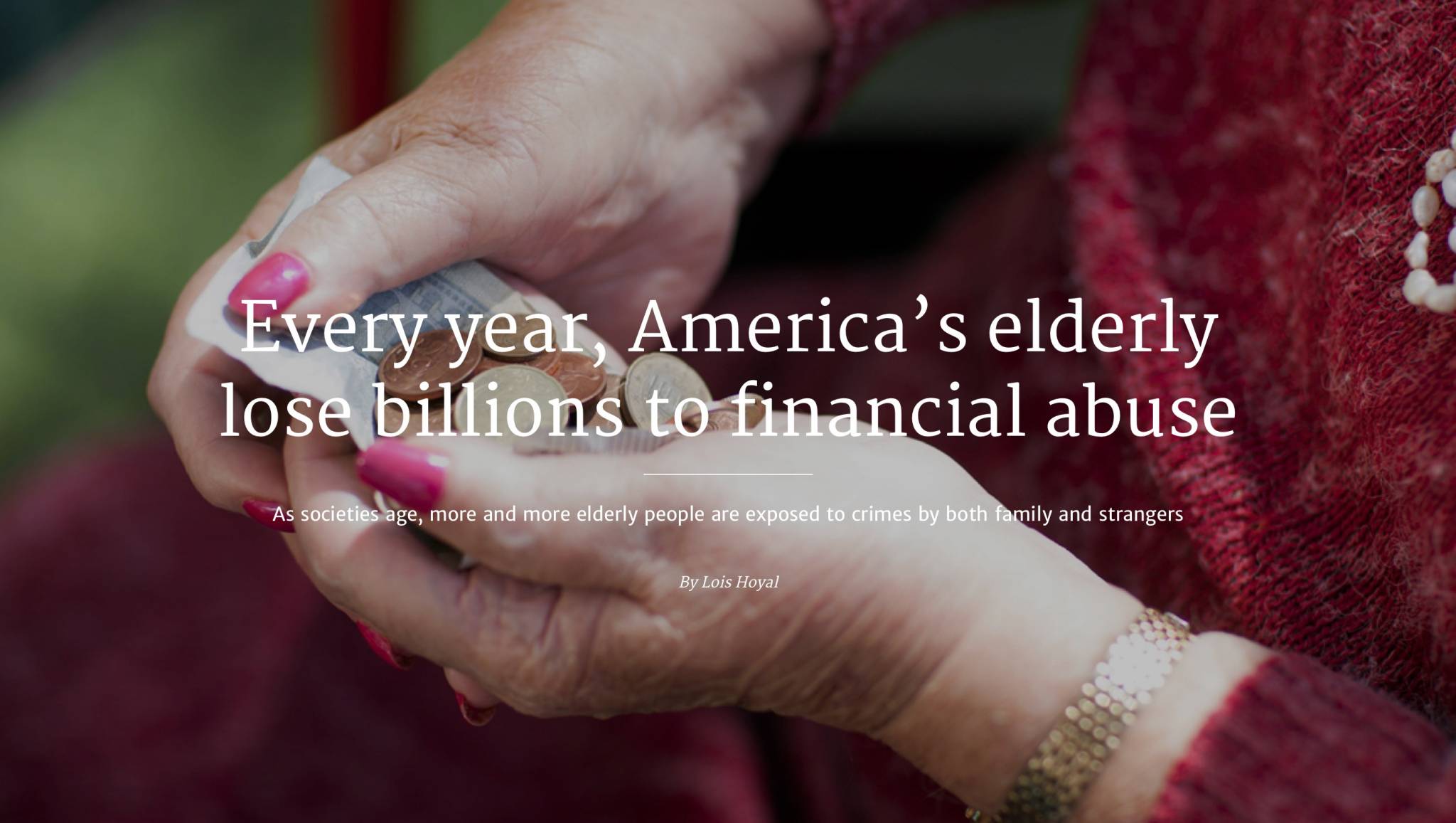Every year, America’s elderly lose billions to financial abuse
by Lois Hoyal, Project M Online
Mickey Rooney is a name you associate with stardom, not suffering. The Hollywood icon (born 23rd September 1920; died 6th April 2014) starred in a series of box office hits, such as A Family Affair and Babes in Arms. Then in 1998, Rooney’s fortunes changed: Rooney allowed his stepson, Christopher Aber, to manage his financial affairs and became a victim of alleged abuse. Rooney claimed that Aber and his wife drained his finances, subjected him to verbal and emotional abuse, and deprived him of necessities, such as food and medicine.
In this article
- Financial crimes against the elderly are increasingly common
- They are often the price of misplaced trust
- But initiatives such as a prepaid credit cards address the issue
In 2011, Rooney testified before a Senate Special Committee on Aging stating, “I was financially exploited and denied access to information of any kind as to how my finances were managed. I was eventually completely stripped of the ability to make even the most basic decisions in my own life.”
Sadly, Rooney isn’t an isolated case. Take the four people charged in Florida in July 2014 by the FBI for allegedly operating call rooms targeting senior citizens and tricking them into purchasing $2.4 million in stock. The fact is that as populations age, more people are falling victim to elder financial abuse. “The population demographic that is older is getting bigger so there are simply more people subject to the potential for financial elder abuse,” says Katherine C. Pearson, professor of law at Penn State University’s Dickinson School of Law and the author of The Law of Financial Abuse and Exploitation, who has served as a consultant on financial abuse for projects in Northern Ireland and the UK, in addition to her former role as the director of her law school’s Elder Protection Clinic.
Crimes from caregivers range from forging a person’s signature to coercing them to sign over power of attorney or taking over their home and bank account. Common scams from strangers include fraudsters impersonating a bank inspector or offering to fix non-existent problems around the home. And the digital age has allowed perpetrators to hide behind technology while providing them with direct access to individuals they previously couldn’t reach.
THE PRICE OF MISPLACED TRUST
Inevitably, there is a price to pay for the increased instances in crime. Elderly Americans lose $36.48 billion each year, according to the True Link Report on Elder Financial Abuse 2015, published by financial services company True Link. Around 36.9% of elderly Americans suffer from financial abuse in any five-year period, the report found.
Most crimes involve a family member or a caretaker but the biggest dollar impact comes from crimes committed by strangers, namely $16.99 billion annually. Meanwhile, $12.76 billion is lost per year to explicitly illegal activity, such as identity theft. And $6.67 billion is lost annually via caregiver abuse, typically deceit or theft by a family member, the report stated.
Obviously, abuse takes more than a financial toll: it can fracture families, increase rates of mental health issues and result in a loss of human rights and dignity.
But why are older people increasingly falling victim to financial exploitation? Even subtle declines in mental sharpness as a result of cognitive aging can make adults more at risk, notes a new report by the US Institute of Medicine. What’s more, older adults generally have high levels of trust with regard to strangers, telephone salespersons, officials and the others they deal with, says Pearson. Therefore, they become an easier target.
Exposure often introduces more risk than perceived vulnerability. Elderly people who are urban and college educated lose more money than those who are not, according to a study by NCPEA, in partnership with the MetLife Mature Market Institute and the Center for Gerontology at Virginia Tech.
Called Crimes of Occasion, Desperation, and Predation Against America’s Elders, the report says that elderly people described as friendly lose four times as much to financial abuse, possibly because they are more approachable. Financially sophisticated older adults lose more to fraud, probably because they are comfortable moving larger amounts of money around. And thrifty seniors, enticed by bargains, lose five times as much to fraud, the study said.
A SAFETY LINK
Thankfully, emerging awareness is prompting initiatives to address elderly abuse. One innovation is a prepaid Visa debit card introduced by True Link, the California-based company behind the previously mentioned report. The card is linked to software, which can block unwanted purchases, send email alerts to family members about suspicious transactions and limit daily purchases to specific amounts.
CEO Kai Stinchcombe set up the company after his grandmother Ruth became a fraud target and gave away tens of thousands of dollars to pushy telemarketers and bogus causes.
In addition, individual countries are introducing programs to tackle abuse. President Obama’s support for setting a new standard of review for financial service industry “advice” to retirees is one such attempt to deal with financial fraud in the industry. The Elder Abuse Victims Act of 2013 in the US aims to prevent, investigate and prosecute those who abuse, neglect and exploit the elderly, while also evaluating the physical and psychological trauma caused. US banks and financial institutions are now mandatory reporters of suspected abuse.
The UK’s Care Bill makes it legally necessary for a local authority to investigate if it believes an adult is a victim of financial abuse or assault. Although Action on Elder Abuse, a UK-based organisation that focuses exclusively on elder abuse, labels the measures included so far as “insufficient.”
Meanwhile, in Germany, useful tools like phone-hotlines or visitor services help monitor the problem at a local level. And the German health insurance medical service – MDK (Medizinischer Dienst der Krankenkassen) monitors care homes and care services carefully.
And in Italy, the municipality of Turin has introduced a service called “Help for elder abuse victims” in financial institutions such as banks to boost awareness about financial abuse. “One of the important international developments is that financial institutions are beginning to be proactive, offering customers, and especially older customers, more safeguards for their financial accounts. “That is a trend I would like to see continue, and it benefits both sides,” says Pearson.
This post was originally published at Project M Online
Copyright © Project M Online












